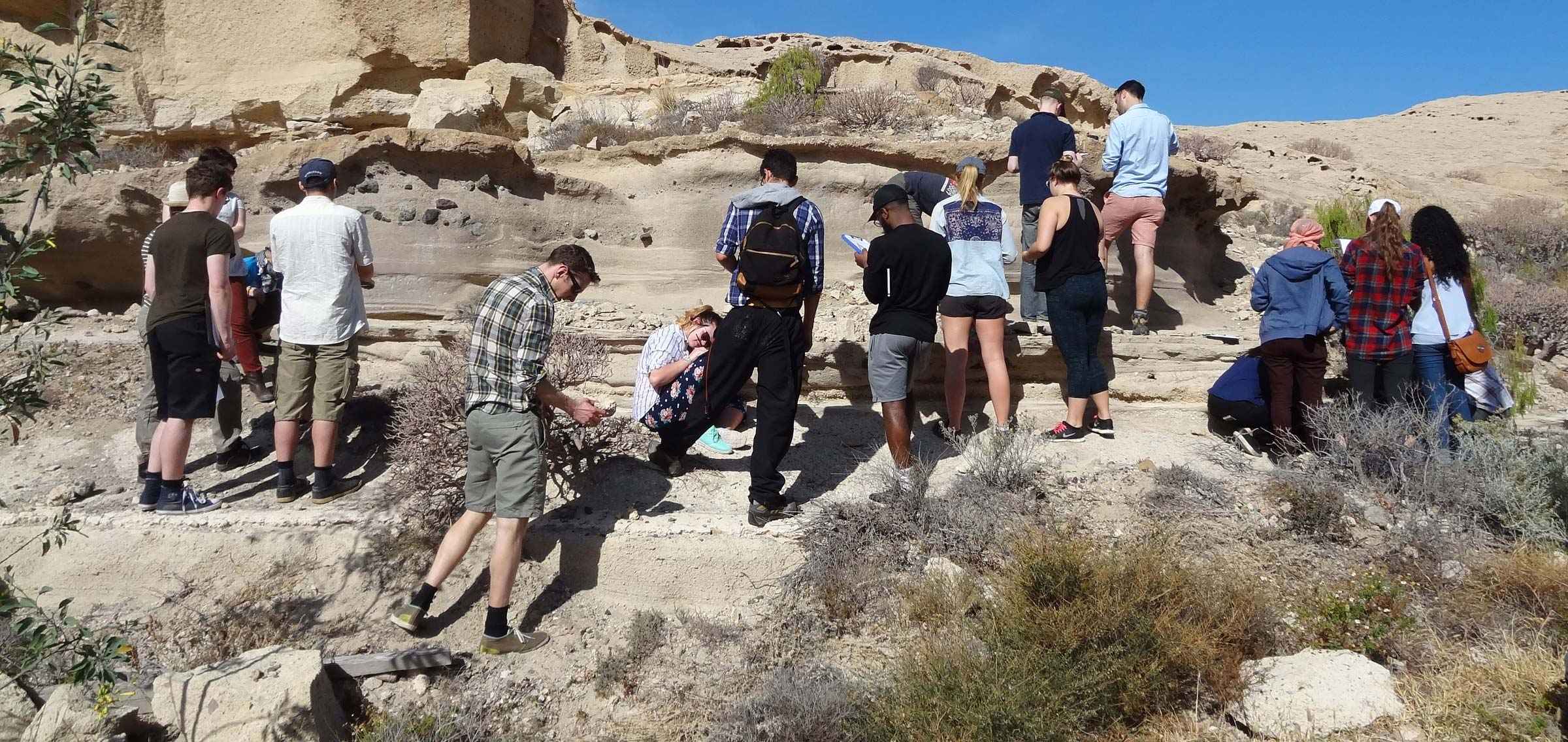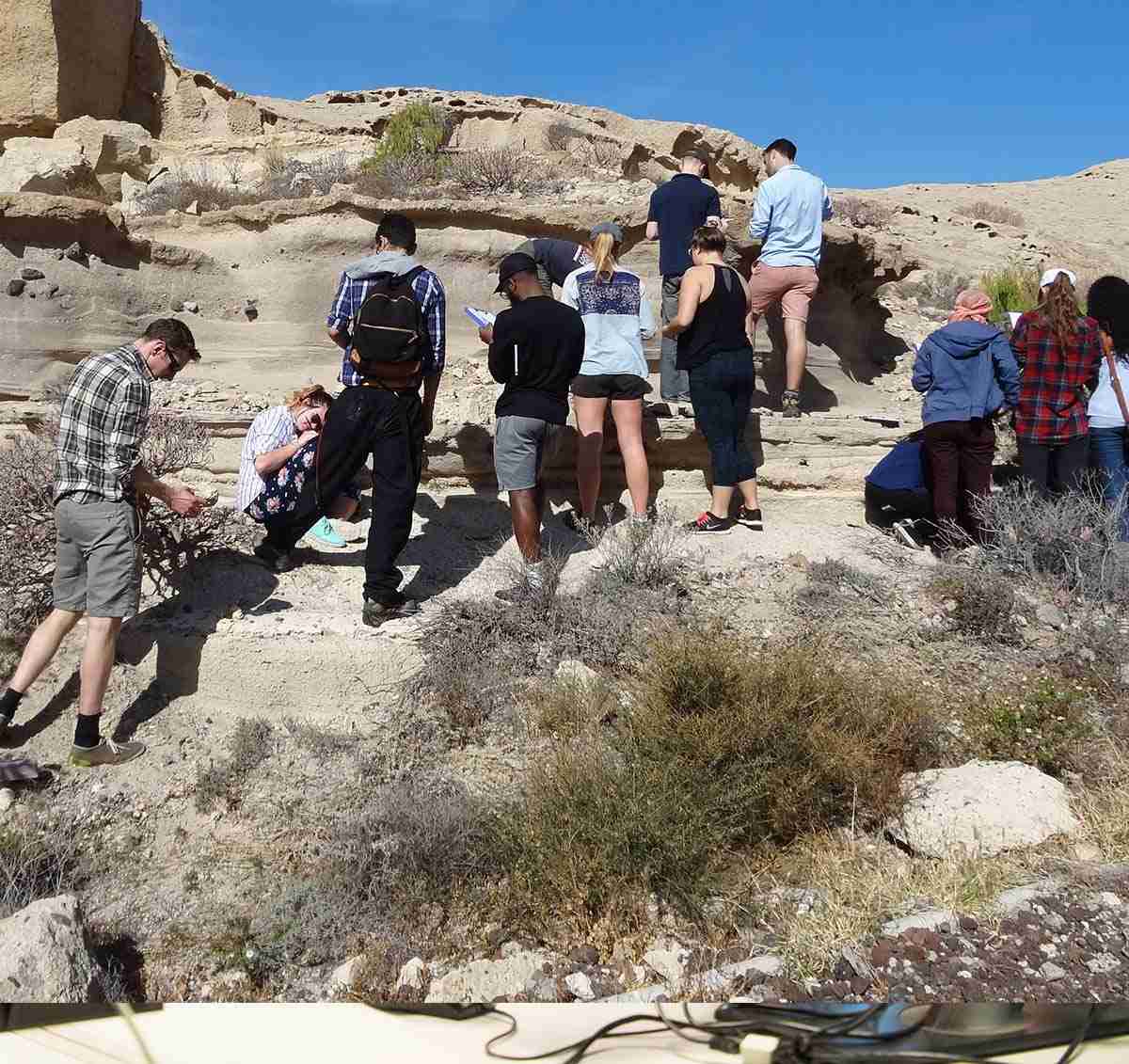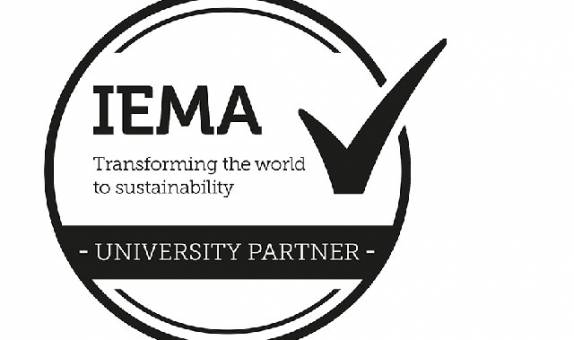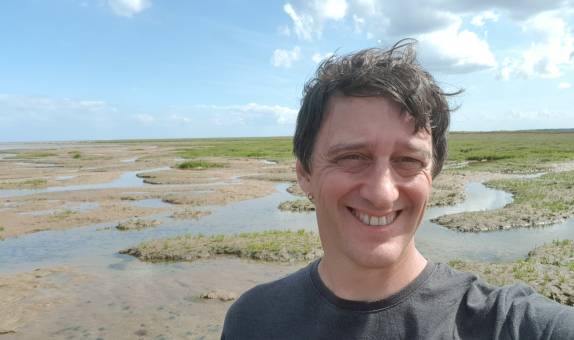Environmental Management MSc
Why choose this course?
The MSc in Environmental Management explores the exploitation of natural environments and the relationships between sustainable environmental management and natural ecosystems. It examines how sustainable environmental management and behaviour can be promoted and achieved.
The MSc in Environmental Management addresses the socioeconomic, ecological, and environmental challenges associated with the provision of goods and services, and the sustainable management of the natural and built environment, which cannot be achieved with business-as-usual practices. Students study theoretical, practical, and legal frameworks for promoting sustainable environmental practices at individual, institutional and governmental levels. They learn how to innovate, respond to new and emerging challenges, and work effectively in changing and unfamiliar situations.
The final masters award title will be reflected by your chosen pathway:
- Environmental Management MSc – this core pathway explores the rationale behind the exploitation of natural environments. It provides you with detailed knowledge and understanding of the important relationships between sustainable environmental management and natural ecosystems and the value of adopting an integrated approach to studying both.
- Environmental Management (Energy) MSc – this pathway is timely, nationally and internationally relevant, given the world's energy needs, as well as the surrounding political debates regarding fossil fuels and increasingly, renewables, which form such an essential component of the world's existence.
Environmental Management MSc
| Mode | Duration | Attendance | Start date |
|---|---|---|---|
| Full time | 1 year | Mostly delivered two days a week (Wednesdays and Thursdays) |
January 2025 September 2025 |
| Full time | 2 years including professional placement | Mostly delivered two days a week (Wednesdays and Thursdays) |
January 2025 September 2025 |
| Part time | 2 years | To be determined by which modules you decide to take in which teaching blocks. |
January 2025 September 2025 |
Environmental Management (Energy) MSc
| Mode | Duration | Attendance | Start date |
|---|---|---|---|
| Full time | 1 year | Mostly delivered two days a week (Wednesdays and Thursdays) |
January 2025 September 2025 |
| Full time | 2 years including professional placement | Mostly delivered two days a week (Wednesdays and Thursdays) |
January 2025 September 2025 |
| Part time | 2 years | To be determined by which modules you decide to take in which teaching blocks. |
January 2025 September 2025 |
| Main Location | Penrhyn Road |
Reasons to choose Kingston University
- The course meets the need for environmental professionals who understand the challenges of sustainable environmental management.
- The University is committed to becoming a sustainable enterprise, providing many opportunities for students to be involved in practical sustainability initiatives and authentic learning.
- Kingston has established active links with European and American universities, ensuring the courses are globally relevant.
- Optional field visits*.
Please note: Field visits will incur an additional cost. Details can be found in relevant module guides or from the course director.
* Students may be required to cover additional costs, such as travel.
Accreditation
This course is accredited by the Institute of Environmental Management and Assessment (IEMA). IEMA is a professional body for people working in environment and sustainability. This course entitles students to FREE student membership for the duration of the course and on successful completion you qualify for GradIEMA. Graduate membership is a launchpad for future leaders within environment and sustainability and offers a range of benefits to support you throughout your career. You can then "fast track" to Practitioner Membership.
What you will study
You will study the theoretical, practical and legal frameworks promoting sustainable environmental management and other drivers for sustainable behaviour at individual, institutional and governmental scales. You will learn how to innovate, respond to new and emerging challenges and work effectively in changing and unfamiliar situations.
The programme is made up of six modules, two worth 30 credits, four worth 15 credits, and a research project module worth 60 credits.
For a student to go on placement they are required to pass every module. It is the responsibility of individual students to find a suitable paid placement. Students will be supported by our dedicated placement team in securing this opportunity.
Environmental Management MSc
Environmental Management (Energy) MSc
Core modules
Environmental Management
30 credits
The module will explore the environmental, economic, and social implications of our decisions and attempts to find sustainable solutions to environmental problems. Focusing on the 21st-century environmental and climate change challenges, you will learn, and explore the following aspects of Sustainable Environmental Management (SEM):
- Sustainable development and dependencies and interconnectivity between Sustainable Development Goals (SDGs)
- Environmental politics and policy making as underpinned by law
- Operation of Environmental Planning, and Environmental Impact Assessment (EIA)
- Importance of accountability, equality, inclusivity, transparency, cultural context, and health and well-being as part of Corporate Social Responsibility (CSR), Environmental, Social, and Governance (ESG).
These will be explored with a series of case studies that illustrate social, economic, and environmental impacts at different scales.
Challenge of Climate Change
30 credits
This module investigates key issues relating to climate change, with a particular focus on the role of policy, governance, and social action in creating appropriate responses to this challenge. The aim is to provide students with the knowledge and skills to critically assess different options for dealing with the challenge of climate change and to identify potential ways forward, based on evidence and lessons from implementing climate change policy and programming.
Core material will be provided in lectures, supported by a range of seminars and workshops to facilitate further discussion, reflection, and analysis. Where feasible, these will draw on the experience of practitioners from a variety of settings and perspectives, or the students themselves. Field visits will be organised to complement the lecture series and to give further practical demonstration of the complexities of climate change-related policy and practice.
Participatory Approaches to Solving Environmental Challenges
15 credits
Participatory approaches have become increasingly widespread in recent years, and they recognise the publics and other stakeholders' right to be involved in environmental decision making, but also expects them to take on a variety of responsibilities.
This module explores the diversity of participatory approaches, from global policy to local action. You will examine the benefits and challenges of participatory approaches involving a range of stakeholders in a number of contexts, and consider those who may be excluded and questions of social justice.
You will explore the complexities of implementing these policies and methods through case studies which focus on key issues and the challenges of balancing a range of competing needs.
Evidence based environmental management
15 credits
Environmental management decision-making should be evidence-based. Problems are often multifaceted and ‘wicked' in that they require the collection, synthesis, and analysis of qualitative and quantitative data on physical phenomena, human attitude and behaviour, and the regulatory and policy framework. This module is concerned with the practical aspects of data collection, analysis, and visualisation of qualitative and quantitative information and analytical results within an environmental management context.
The module covers the collection of primary data (e.g. through field survey, questionnaires or interviews) and the synthesis of secondary data resources that are often diverse, fragmented, partial, inconsistent, and commercially or personally sensitive. Students will learn how to explore and visualise environmental management information as graphs and maps, and to analyse textural and statistical pattern. Students will evaluate and critique the quality and fitness-for-purpose of survey designs and secondary data resources. The skills developed in this module are applicable to GG7XX7 Research Project and are transferrable skills that will enhance employability.
Water resource management
15 credits
The module examines global water resource challenges, the relationship between water, energy and land, and sustainable management solutions. Students will develop a critical evaluation of these challenges at a variety of scales through the systematic investigation of the component challenges, the interface between the components and their relationship to sustainable development, including resource assessment and resource use; water scarcity and security and water management decision-making.
Students will critically examine and debate natural (including climate) and socio-political drivers, mitigation, and adaptive environmental management strategies. The module will be spatially nested, examining broad global challenges, regional investigations in developed and developing world contexts, and local case studies to exemplify, compare and contrast experiences.
The module places an emphasis on professional skills development and KU Graduate Attributes and will be studied in multi-delivery and assessment modes, occupying multiple learning environments, blending lecture, seminars, debates and reflective sessions and practical skills acquisition. Practical skills will include field-based learning will include the opportunity for regional study in the UK and overseas.
Academic Research and Professional Practice
15 credits
This module is concerned with the theoretical, practical, and ethical aspects of good academic, research and professional practice. The module begins by developing students' knowledge and skills of academic practice: finding, assessing, and collating information; academic writing, citation and referencing; and academic integrity.
With a firm academic base established, the module moves to implementing this practice to produce a team-based research project proposal of a designated environmental challenge. Research will be placed in the context of theoretical/conceptual frameworks such as Saunder's "research onion", "design thinking", and dissertation forms (traditional, systematic review, systematic map, and meta-analysis). The purpose and praxis of undertaking a literature review and developing a research proposal will be explained, as will their structure. Research and project management, ethics, and health and safety are considered.
The module will be delivered through a short series of lectures that explain concepts and good practice. Practical skills will be developed through workshop and computer-based classes and independent learning though on-line resources. The module develops crucial academic and professional practice a companion to Evidence-based Environmental Management and feeds into Research Project.
Research Project
60 credits
This final module provides students with the opportunity to design and execute an original research ‘capstone' project related to their own discipline specific interests, which synthesises their learning. They will develop a theoretically informed body of work that integrates both theory and practice. It may take the form of a dissertation, practice project, or experiment-based project. Following submission students present their findings at a Masters Students Conference.
Core modules
Environmental Management
30 credits
The module will explore the environmental, economic, and social implications of our decisions and attempts to find sustainable solutions to environmental problems. Focusing on the 21st-century environmental and climate change challenges, you will learn, and explore the following aspects of Sustainable Environmental Management (SEM):
- Sustainable development and dependencies and interconnectivity between Sustainable Development Goals (SDGs)
- Environmental politics and policy making as underpinned by law
- Operation of Environmental Planning, and Environmental Impact Assessment (EIA)
- Importance of accountability, equality, inclusivity, transparency, cultural context, and health and well-being as part of Corporate Social Responsibility (CSR), Environmental, Social, and Governance (ESG).
These will be explored with a series of case studies that illustrate social, economic, and environmental impacts at different scales.
Energy Management
30 credits
This is the key module for the Energy pathway in the MSc Environmental Management. Against the background of international commitments on atmospheric emissions, diminishing fossil fuel resources and the liberalisation of energy markets, this module examines sustainable options for energy production, supply, and consumption. Specifically, the module will equip the students with a set of skills and abilities to identify classify and critically describe energy sources, and energy usage using analytical methods.
It is certainly true to say that today, few would perceive a future without renewables making a notable contribution to energy supplies in the longer term. However, it is also true to say that many envisage an ongoing role for both conventional fossil fuels and nuclear power. The primary aim of the module is to give students a good understanding of current trends, and to enable a critical evaluation of emerging ideas, technologies and policies.
Participatory Approaches to Solving Environmental Challenges
15 credits
Participatory approaches have become increasingly widespread in recent years, and they recognise the publics and other stakeholders' right to be involved in environmental decision making, but also expects them to take on a variety of responsibilities.
This module explores the diversity of participatory approaches, from global policy to local action. You will examine the benefits and challenges of participatory approaches involving a range of stakeholders in a number of contexts, and consider those who may be excluded and questions of social justice.
You will explore the complexities of implementing these policies and methods through case studies which focus on key issues and the challenges of balancing a range of competing needs.
Evidence based environmental management
15 credits
Environmental management decision-making should be evidence-based. Problems are often multifaceted and ‘wicked' in that they require the collection, synthesis, and analysis of qualitative and quantitative data on physical phenomena, human attitude and behaviour, and the regulatory and policy framework. This module is concerned with the practical aspects of data collection, analysis, and visualisation of qualitative and quantitative information and analytical results within an environmental management context.
The module covers the collection of primary data (e.g. through field survey, questionnaires or interviews) and the synthesis of secondary data resources that are often diverse, fragmented, partial, inconsistent, and commercially or personally sensitive. Students will learn how to explore and visualise environmental management information as graphs and maps, and to analyse textural and statistical pattern. Students will evaluate and critique the quality and fitness-for-purpose of survey designs and secondary data resources. The skills developed in this module are applicable to GG7XX7 Research Project and are transferrable skills that will enhance employability.
Water resource management
15 credits
The module examines global water resource challenges, the relationship between water, energy and land, and sustainable management solutions. Students will develop a critical evaluation of these challenges at a variety of scales through the systematic investigation of the component challenges, the interface between the components and their relationship to sustainable development, including resource assessment and resource use; water scarcity and security and water management decision-making.
Students will critically examine and debate natural (including climate) and socio-political drivers, mitigation, and adaptive environmental management strategies. The module will be spatially nested, examining broad global challenges, regional investigations in developed and developing world contexts, and local case studies to exemplify, compare and contrast experiences.
The module places an emphasis on professional skills development and KU Graduate Attributes and will be studied in multi-delivery and assessment modes, occupying multiple learning environments, blending lecture, seminars, debates and reflective sessions and practical skills acquisition. Practical skills will include field-based learning will include the opportunity for regional study in the UK and overseas.
Academic Research and Professional Practice
15 credits
This module is concerned with the theoretical, practical, and ethical aspects of good academic, research and professional practice. The module begins by developing students' knowledge and skills of academic practice: finding, assessing, and collating information; academic writing, citation and referencing; and academic integrity.
With a firm academic base established, the module moves to implementing this practice to produce a team-based research project proposal of a designated environmental challenge. Research will be placed in the context of theoretical/conceptual frameworks such as Saunder's "research onion", "design thinking", and dissertation forms (traditional, systematic review, systematic map, and meta-analysis). The purpose and praxis of undertaking a literature review and developing a research proposal will be explained, as will their structure. Research and project management, ethics, and health and safety are considered.
The module will be delivered through a short series of lectures that explain concepts and good practice. Practical skills will be developed through workshop and computer-based classes and independent learning though on-line resources. The module develops crucial academic and professional practice a companion to Evidence-based Environmental Management and feeds into Research Project.
Research Project
60 credits
This final module provides students with the opportunity to design and execute an original research ‘capstone' project related to their own discipline specific interests, which synthesises their learning. They will develop a theoretically informed body of work that integrates both theory and practice. It may take the form of a dissertation, practice project, or experiment-based project. Following submission students present their findings at a Masters Students Conference.
Why you should study Environmental Management at Kingston University
Work placement scheme
Many postgraduate courses at Kingston University enable students to take the option of a 12-month work placement as part of their course. Although the University supports students in finding a placement and organises events to meet potential employers, the responsibility for finding the work placement is with the student; we cannot guarantee the placement, just the opportunity to undertake it. You may find securing a professional placement difficult as they are highly competitive and challenging, but they are also incredibly rewarding. It is very important to prepare and apply yourself if this is the route you wish to take. Employers look for great written and oral communication skills and an excellent CV/portfolio. As the work placement is an assessed part of the course, it is covered by a student's Student Route visa.
Find out more about the postgraduate work placement scheme.
Entry requirements
Teaching and assessment
Who teaches this course?
The course is taught by the Department of Geography, Geology and the Environment. Staff have a wide range of experience in academic research and industry and continue to practice and research at the cutting edge of their discipline.
Guest lecturers from other academic institutions and industry will provide specialist in-depth or practice-based lectures and workshops ensuring that our courses are current and industry informed ensuring you get the most relevant and up-to-date education possible.
The Department has invested substantially in the development of laboratories for teaching and research into subjects such as environmental monitoring, geology, geochemistry, computing facilities, and specialist instrumentation laboratories.
Facilities
There is a wide range of facilities for practical work at our Penrhyn Road campus, where this course is based. You will have access to a modern environment with the latest equipment, including:
- laboratories dedicated to environmental science learning and research
- computing laboratories and a team of IT technicians to offer assistance
- the award-winning Town House, with a well-stocked library that boasts an impressive collection of texts, journals and online e-books/journals
- excellent social spaces, plus a large, fully equipped gym and fitness centre
- a fully integrated virtual learning environment (Canvas) so you can learn and interact with others on your course 24/7
Where this course will take you
Graduates are expected to find extensive career opportunities with NGOs, governmental organisations, businesses, industry and education or as independent consultants and advisers. Recent graduates are employed by local councils as environmental sustainability officers or waste management officers.
Careers and recruitment advice
The Faculty has a specialist employability team. It provides friendly and high-quality careers and recruitment guidance, including advice and sessions on job-seeking skills such as CV preparation, application forms and interview techniques. Specific advice is also available for international students about the UK job market and employers' expectations and requirements.
The team runs employer events throughout the year, including job fairs, key speakers from industry and interviews on campus. These events give you the opportunity to hear from, and network with, employers in an informal setting.
Fees for this course
Additional costs
Depending on the programme of study, there may be extra costs that are not covered by tuition fees which students will need to consider when planning their studies. Tuition fees cover the cost of your teaching, assessment and operating University facilities such as the library, access to shared IT equipment and other support services. Accommodation and living costs are not included in our fees. Where a course has additional expenses, we make every effort to highlight them. These may include optional field trips, materials (e.g. art, design, engineering), security checks such as DBS, uniforms, specialist clothing or professional memberships.
What our graduates say
After you graduate
These courses offer an excellent foundation for careers in local government, non-governmental organisations, major international companies, independent consultancy and education (e.g. research and enterprise).
Current research in this subject
- Research in waste resources management and circular economy.
- Research into community engagement with nature monitoring and citizen science
- The role the voluntary and community sector plays in providing resilience to hazards and how they can be effectively included in resilience planning and decision making at the local level.
- Investigating sustainable water resource management solutions in global contexts (e.g. desalination integration).
- Application of Geographical Information Systems to resource and biodiversity management.
- Conservation management in UK and Madagascar.
- Salt marsh carbon sequestration.
- Virtual reality visualisation of nature-based environmental solutions.
Course changes and regulations
The information on this page reflects the currently intended course structure and module details. To improve your student experience and the quality of your degree, we may review and change the material information of this course. Course changes explained.
Programme Specifications for the course are published ahead of each academic year.
Regulations governing this course can be found on our website.










